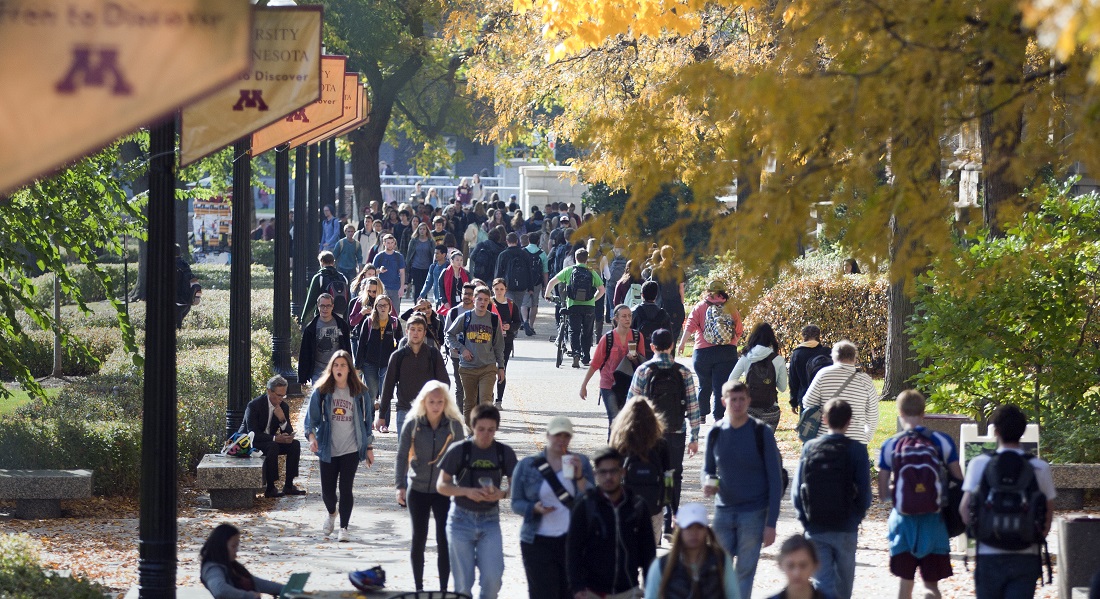U of M seeks funding to boost support for low-, middle-income students

The University of Minnesota wants to increase access to higher education and reduce costs for Minnesota students.
The goal of making college affordable is part of university’s strategic plan to bring more state residents, particularly those from underrepresented communities, to college and to help them graduate in a timely fashion, Bob McMaster, the university’s vice provost and dean of undergraduate education, told the House Higher Education Finance and Policy Committee Tuesday.
Sponsored by Rep. Ginny Klevorn (DFL-Plymouth), HF2752 would appropriate $65 million to provide financial aid and scholarships to low- and middle-income families, and boost student support services, such as academic and career counseling.
The bill, laid over for further consideration, would also increase the university’s operations and maintenance base appropriation in fiscal year 2024 and later by $65 million. It has no Senate companion.
The bulk of the bill — $60 million — would expand the university’s Promise Programs across its five campuses. It would benefit 74% of Minnesota families, and help first-generation students enroll and graduate college, McMaster said.
As part of addressing issues that slow down students’ academic progress, $5 million would be for improving mental health and wellbeing, in addition to tutoring and financial literacy programs. Graduating on time would reduce financial burden for students, he said.
Jeffrey Ratliff-Crain, vice chancellor for academic affairs and innovation at the Rochester campus, highlighted the scholarship programs for Greater Minnesota students in the bill, saying it would help more students stay in Minnesota to attend college and enhance their sense of belonging that potentially would keep them in the state after they graduate.
Rep. Tony Albright (R-Prior Lake) asked why the university was seeking more funding after raising tuition recently.
His concerns were echoed by Rep. Marion O'Neill (R-Maple Lake) who pointed to an increase in the salary of the university’s president on one hand, and the elimination of sports teams on the other, ostensibly to cut costs. The university is seeking a lot of money without addressing its own fiduciary responsibilities, she said.
Related Articles
Search Session Daily
Advanced Search OptionsPriority Dailies
Stable budget outlook projects $3.7 billion surplus now, no deficit in next biennium
By Lisa Kaczke The projected surplus for Fiscal Years 2026-27 is now higher than it was in the November estimate, and no deficit is projected for the next biennium.
“Minnesota’s budge...
The projected surplus for Fiscal Years 2026-27 is now higher than it was in the November estimate, and no deficit is projected for the next biennium.
“Minnesota’s budge...
Legislative leaders set 2026 committee deadlines
By Lisa Kaczke Legislative leaders on Tuesday officially set the timeline for getting bills through the committee process during the upcoming 2026 session.
Here are the three deadlines for...
Legislative leaders on Tuesday officially set the timeline for getting bills through the committee process during the upcoming 2026 session.
Here are the three deadlines for...